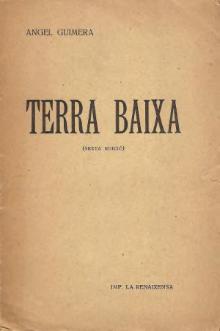.mw-parser-output .hidden-begin{box-sizing:border-box;width:100%;padding:5px;border:none;font-size:95%}.mw-parser-output .hidden-title{font-weight:bold;line-height:1.6;text-align:left}.mw-parser-output .hidden-content{text-align:left}@media all and (max-width:500px){.mw-parser-output .hidden-begin{width:auto!important;clear:none!important;float:none!important))You can help expand this article with text translated from the corresponding article in Catalan. (April 2009) Click [show] for important translation instructions.
Machine translation, like DeepL or Google Translate, is a useful starting point for translations, but translators must revise errors as necessary and confirm that the translation is accurate, rather than simply copy-pasting machine-translated text into the English Wikipedia.
Do not translate text that appears unreliable or low-quality. If possible, verify the text with references provided in the foreign-language article.
You must provide copyright attribution in the edit summary accompanying your translation by providing an interlanguage link to the source of your translation. A model attribution edit summary is Content in this edit is translated from the existing Catalan Wikipedia article at [[:ca:Terra baixa]]; see its history for attribution.
You may also add the template ((Translated|ca|Terra baixa)) to the talk page.
For more guidance, see Wikipedia:Translation.

Terra baixa (Catalan pronunciation: [ˈtɛrə ˈβaʃə], meaning in English Lowlands, also known as Martha of the Lowlands) is a Catalan-language play written by Àngel Guimerà in 1896. The drama is considered his most popular work, having become an international sensation after its premiere.[1]
It served as the basis for three operas, among them Tiefland, by Eugen d'Albert,[2] which in turn served as the basis for two films, including one by Leni Riefenstahl. Six other films based directly on the play were also made.[3][4][5][6][7]